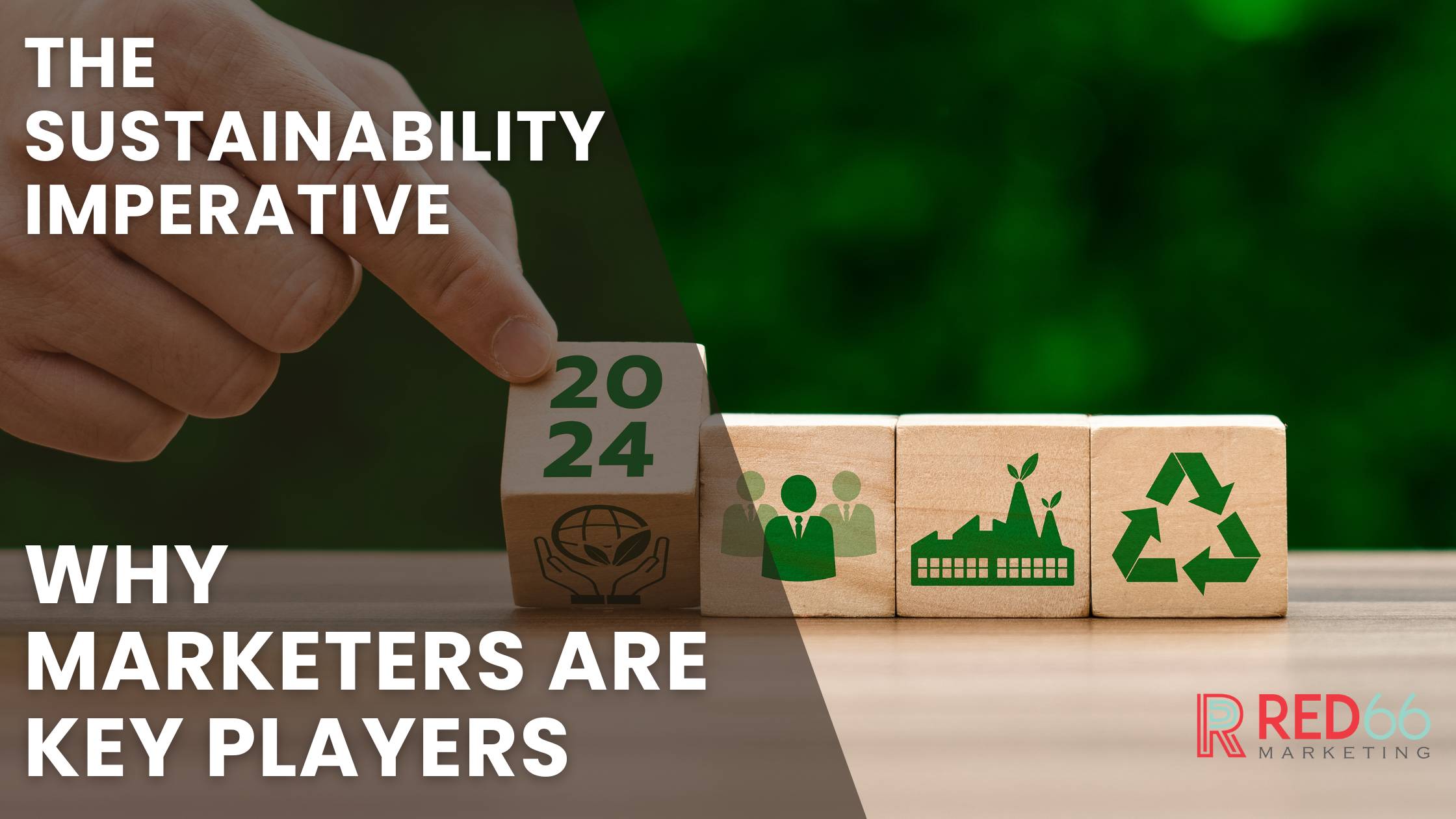A Marketer’s Role in Driving Sustainable Business Practices

As businesses strive to operate more sustainably and reduce their environmental impact, marketers play a crucial role in driving these efforts forward. Sustainability is no longer just a buzzword; it’s a core value that resonates deeply with consumers, particularly with younger audiences such as the eco-conscious Gen Z demographic.
However, achieving true sustainability requires more than just making claims—it demands transparency, authenticity, and a genuine commitment to protecting people, preserving natural resources and inspiring change.
In this blog post, we’ll explore the critical role marketers play in promoting sustainability and how they can engage audiences while making a positive impact.
Marketing with Environmental Purpose
Sustainable marketing isn’t a passing trend; it’s here to stay, and we’re nearing a point where sustainability will become an expectation when making purchases. Understanding and meeting these expectations is crucial for businesses to engage with consumers and contribute to environmental efforts.
The first step is thoroughly assessing an organization’s environmental impact and understanding the carbon footprint across operations. From there, we can establish clear and measurable green goals and objectives that align with core business values and ethics.
Whether it's reducing carbon emissions, minimizing waste, or sourcing more sustainable materials, having defined sustainability targets provides a roadmap for more eco-friendly practices.
This integration of sustainability into a business not only benefits the planet but also enhances the brand’s appeal to consumers, positioning them for long-term success in an increasingly eco-conscious marketplace.
Authentic Storytelling and Education
Marketers have the unique ability to translate complex sustainability initiatives into compelling narratives that resonate with consumers. By educating audiences on the ‘why’ behind a company’s sustainable choices, marketers can foster understanding, build trust, and cultivate credibility.
Sustainability isn’t just about making good choices; it’s about empowering consumers with knowledge and inspiring them to be agents of change.
Motivation Through Positive Impact
Beyond education, marketers inspire consumers to make more environmentally conscious decisions by highlighting the positive impact of their choices. Marketers can help consumers make sustainable choices that match their values and benefit the planet by highlighting the key benefits.
When given the choice, consumers often choose sustainable products or services, providing eco-friendly businesses with a competitive advantage in both attracting and retaining customers.
An example of this is Patagonia’s “Buy Less Demand More” campaign, where they put a spotlight on how consumers can make an impact with their buying decisions. The campaign's compelling messaging and calls-to-action empowered consumers to make more mindful choices, such as knowing what source materials their clothes are made from, while still aligning with the brand’s values.
Embracing Transparency
In an age of heightened consumer skepticism towards greenwashing, the act of making false or misleading claims about environmental benefits of a product or service, authenticity, and transparency are non-negotiables for sustainable marketing strategies.
Marketers need to prove their sustainability claims with real-life proof to maintain consumer trust and avoid making empty promises. By embracing transparency and openly acknowledging areas for improvement, brands can demonstrate a genuine commitment to progress and create a culture of accountability.
Collaboration & Partnerships
Businesses can increase their impact on sustainability by working together with similar organizations, non-profits, and industry groups. Whether it’s supporting environmental causes, participating in sustainability certifications, or collaborating on educational campaigns, marketers have the opportunity to leverage their networks for greater social and environmental good.
A notable example of partnerships is the organization 1% for the Planet. This group consists of many businesses that promise to give 1% of their yearly sales to help environmental groups globally. The core message behind this initiative emphasizes the power of collective action, even if the individual contribution seems small.
The Green Marketing Advantage
As businesses continue to pivot towards sustainable practices, marketers are essential in propelling these efforts forward. With sustainability becoming a baseline expectation for consumers, companies must act now to integrate environmental responsibility into their operations.
By aligning with core values, setting clear sustainable marketing practice goals, and effectively engaging with consumers, businesses can enhance their brand appeal in an increasingly eco-conscious market.
Stay updated on the latest digital marketing trends and strategies by subscribing to our bi-monthly newsletter or following us on social media!









